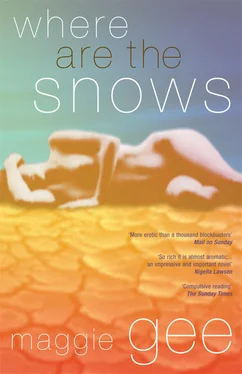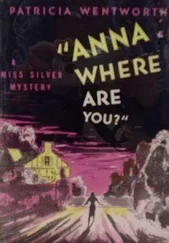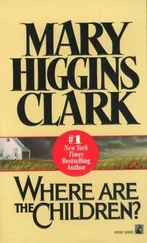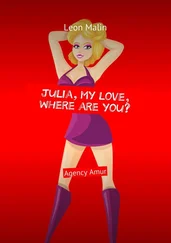I stared around me in stupid panic, the Feira da Ladre was covered in shadows, flitting silently from blanket to blanket, shadowy people with solemn eyes, poor Portuguese I had failed to notice, the salesmen were skeletons, leering at me, broken bicycles, a fork, a clock, had my whole life been as random as this?
Then I spotted her coming down the hill above me, the sun came out, her hair lit up, but I was noticing her haughty walk, every bone and ligament discontented; she wore dark glasses but her mouth was set.
‘Can we leave this ridiculous place?’
It was not like her to ask permission. ‘Of course. I thought perhaps you’d already gone…’
That snapped a cord; she was suddenly raving. ‘How the hell can I leave? You’ve got the fucking money! And the fucking keys! And the fucking map!’
‘But — you didn’t want to bring a jacket, or a handbag. I’m carrying them because you asked me to —’
‘Precisely, so you have to think about me! You can’t go footling off on your own! You can’t just act as if I don’t exist! I was lost, and then I was watching you, you were like a little dog going after a scent, you never looked for me, not once!’
And then I realised it wasn’t just anger, the big tears rolled down from under her glasses, her narrow black glasses, so hard, so smart, and her painted lips collapsed, shivering, a small dark animal dying in the desert. She was wringing her hands and weeping, steadily. I was deeply moved; I was horrified. I had never seen her like this before. I put my arms round her shoulders and guided her away, stepping hastily over the crouching vendors who didn’t look up, we were irrelevant to them, we had spent no money, we were going away.
I stopped a taxi; she huddled against me, no longer accusing but crying quietly. Her warm tears on my cheek and my neck, the wonderful wetness of my shirt, we were close again, we were close at last, for the first time since we’d landed in Europe.
‘It’s all right, it’s all right.’ I felt it was, as long as she leaned on me like that.
‘I hated that place. It was like death.’
‘I’m sorry, it was my idea…’
‘Didn’t you hate it?’
‘Well… I was fascinated, actually.’
‘But everything was dirty and broken and useless…’
‘That was what I liked, in a funny way.’
‘I don’t understand you, Christopher.’
Later, in bed, where she clung to me, where we made love, where we made friends, I tried to explain to myself and her.
‘It was like an enormous museum. About human life, or human artefacts. But all set up by alien beings, who didn’t understand how to classify things… I liked the randomness.’
‘It wasn’t all random. There were those tins —’
‘OK, and the comic stall, and all those glasses —’
‘The dolls. That was what finished me off. They were so pathetic — disgusting, I mean. No one could ever want dolls like that.’
I’d seen the dolls, a field-hospital of dolls, lacking a leg, an arm, an eye, half their hair, a blouse, a skirt, yet each laid out lovingly by the vendor on its own small patch of blanket, so his goods might be seen to best advantage.
‘The way they were laid out. Like little dead bodies. Nobody would want them. They would lie there for ever.’
Extraordinary. Her eyes were full of tears again.
‘Alex… what is the matter? You sneered at the Portuguese for being sentimental about pigeons, now you’re getting weepy about a few dolls!’
‘Nonsense, I hated them, I can’t explain, it was the end of the world, that place. Nothing but the past. Everything — ugly. Neglected, broken, useless.’
She was still crying as she talked. I was missing something, not understanding.
‘Never mind, we’ll be in Sagres tomorrow.’
‘I’m… overtired. I’m going to sleep.’
On the train to the south next day we sat close together; she wanted me to look after her, it was as if she were convalescing from something, no longer impatient or independent. I loved to look after her, I always had. I felt perfectly hot and perfectly happy.
— She was human, after all. I had started to think she was inhumanly strong, indifferent, unchanging, doing her exercises morning after morning no matter how hot or humid it was, walking and dancing when mere mortals like myself were stretched on the bed with a long cool drink, never ill except for her headaches, and those were more often a sign of rage…
Outside the window the terrain got brighter, harsher, sharper, more desert-like. Grey spiny agave was the only vegetation. The occasional human figure was bowed and ant-like, tightly contracted against the light. The houses crouched, flat-roofed and shuttered, white and blind in the punishing sun. I thought of South America, where I’d travelled as a very young man, but never with Alex, that was not for her.
Light poured in from the barren plain. She dozed against me and I stared at her. Funny how rarely you really look at the people you are closest to. I looked to admire, when we were promenading, I looked to enjoy, when she was naked, but I never looked to discover things. Now I wanted to learn about the rest of our life.
Yes, she was human, mortal. Her fine freckled skin had begun to wrinkle, there were little stretched fans beneath each eye, the eyelids were very faintly brown, and the bridge of her nose, so straight, so pure, was surely more visible than it once was, as if the bones were minutely closer to the surface.
I looked, I tell you, with absolute tenderness. I loved her more than I ever had as the glare revealed she would age like me.
Asleep, she trusted me completely; to look at her, to look after her. I kissed her gently, her hair and her cheek, still smooth as a flower beneath my lips, and she woke, and smiled, and slept again. We should be together till the day we died. A great exaltation rose in me, a certainty I had never quite had ever since she’d refused to bear my child some twenty years before, when we first fell in love…
It had been a refusal to give herself when she said she wasn’t interested in children — my children, I thought, she doesn’t want my children, how long is she going to want me? And the other thing, later, worse, much worse, as if she had killed a part of me, as if she’d decided to kill our future, unbearable still to think about that.
Yet Alex had stayed with me; she was forty-seven when we made that second trip to Portugal. On that slow hot train I felt at last that nothing now could take her away from me…
And everything I felt was folly.
The rest of that trip is a blur, with strange sharp fragments that don’t fit together. It was a different country we’d come to. The people were inturned, dour, suspicious; the bleakness of the country was in them. This land was wide and high and harsh, rock and cactus and flat baked earth. The edge of Europe was entirely ungentle, a savage break between earth and sea over which the winds poured and the waters raged, flung back by the cliffs in torrents of spray. At Cape St Vincent grey walls of rock dropped perpendicular into the Atlantic. The lighthouse looked brave and small from a distance. You felt these people clung on to the earth by a mixture of courage and grim endurance.
— So how did they ever summon the flair to set off on those epic voyages? How did they dare to send their wooden boats acros the enormous curve of the earth? Was it possible that Alex and I would find new heart for our travels here?
I saw most of this alone. Alexandra was strange and lethargic, she who was never lethargic, and spent much of the time in our hotel room reading Portuguese scandal mags and watching television. We were staying in the pousada at Sagres, which was full of rich Americans. It was outside the town, an unreal place of anonymous luxury, slightly dated; its style and size could not have been less attuned to its surroundings. There were too many staff, who wouldn’t meet our eyes. Everyone was dwarfed by the high ceilings; the lounge was a hundred feet long, and they’d chosen furniture to scale, so the guests looked tiny on the vast leather sofas. Our room had two massive dark wood beds, so large that they looked like two doubles. I made a joke about wife-swapping, and Alex said, ‘I hate them… they look like funeral barques.’
Читать дальше












